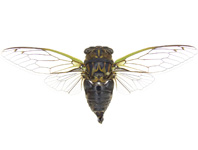Abstract
The genus Enispa Walker, 1866, type species: Enispa eosarialis Walker, 1866 [Borneo, Sarawak] (= Micraeschus Butler, 1878, type species: Hyria elataria Walker, 1861 [Sri Lanka]), contains several species, about 20 of which described and many still undescribed, some also probably misplaced. The genus occurs in Indo-Australian tropics and subtropics. Presently there are 5 species known from Borneo, with mention of several undescribed Enispa-like species (Holloway, 2009). From Thailand there are 8 species illustrated in Kononenko & Pinratana's (2013) book, 5 of which unidentified and some others, based on specimens originated from present author, which most probably are not Enispa. Nielsen & al. (1996) mentioned 7 species in Australia.
References
Hadley, A. (2012) CombineZP, released 6 June 2010, open-source image processing software for creating extended depth of field images. Available from: http://www.hadleyweb.pwp.blueyonder.co.uk/CZP/Installation.htm (accessed 9 May 2017)
Holloway, J.D. (2009) The Moths of Borneo, part 13. Noctuidae. Malayan Nature Journal, 62 (1 & 2), 1–240.
Kononenko, V. & Pinratana, A. (2013) Moths of Thailand. Vol. 3. Part 2.Noctuoidea. Brothers of Saint Gabriel in Thailand, Bangkok, 624 pp.
Nielsen, E.S., Edwards, E.D. & Rangsi, T.V. (Eds.) (1996) Checklist of the Lepidoptera of Australia. CSIRO, Collingwood, 529 pp.
Sugi, S. (Ed.) (1987) Larvae of larger moths in Japan. Tokyo: Kodansha.
Tamura, K., Stecher, G., Peterson, D., Filipski, A. & Kumar, S. (2013) MEGA6: Molecular Evolutionary Genetics Analysis, version 6.0. Molecular Biology and Evolution, 30, 2725–2729.
https://doi.org/10.1093/molbev/mst197

